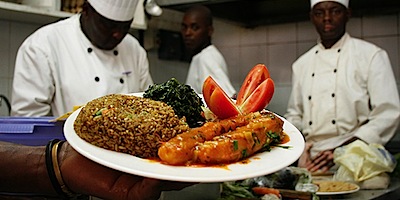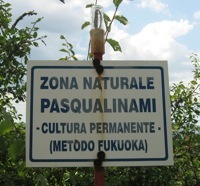Mary whets our appetite for a full report on the Glass Orchard:
I’m back from a lovely morning over there. Preliminary report: O.M.G. I expected to be impressed. I didn’t expect to be gobsmacked. < … Snip … > Stunning. Seriously.
Agricultural Biodiversity Weblog
Agrobiodiversity is crops, livestock, foodways, microbes, pollinators, wild relatives …
Mary whets our appetite for a full report on the Glass Orchard:
I’m back from a lovely morning over there. Preliminary report: O.M.G. I expected to be impressed. I didn’t expect to be gobsmacked. < … Snip … > Stunning. Seriously.
It’s been a busy week, so although I noticed a BBC World documentary series about Five Farms, I thought, I’ll save that for the weekend. And I forgot to bookmark the page at the BBC. Now, when I actually go looking for it, I’m covered in confusion. Truth be told, the BBC, domestic and World, provides magnificent service, but it isn’t always easy to find what you’re looking for in its web sites. Anyway, I had enough nuggets of information to go searching for the motherlode. And here it is: www.fivefarms.org.
If you want to hear the programmes, which were made by the Center for Documentary Studies at Duke University, they’re most easily available in a variety of formats from WUNC, North Carolina Public Radio. And there are multimedia video clips.
I didn’t find it easy to subscribe to the podcasts, but I have downloaded the programmes to listen to as I find time. This page makes it relatively easy to do so.

Matoke, spinach (local, or genuine Spinacea oleracea?) and rice (why not sorghum, or millet?) about to be served at a Nairobi restaurant. 1 The photo illustrates an article in the Daily Nation, following up on Agriculture Minister William Ruto’s call for traditional crops to be given a greater role in Kenya’s food security plan. According to the article, Kenya’s farmers, or their representatives, seem to want more and better incentives to turn away from maize. I wonder, though, whether the most far-sighted farmers, and restaurants, won’t show the way by adopting agricultural biodiversity and thus turning a healthy profit, thank you very much.
 File this one under spooky. Yesterday, walking in the Italian countryside, I spotted an unusual sign. It says, in effect, Permaculture, Fukuoka Method. How many people passing that sign would have the faintest idea what it meant? My companion had no idea who had put it up, or why. I told him briefly about Fukuoka, and he said he’d ask around among his neighbours and see what he could discover. And I took a close look at the hedge in which the sign was planted, and I couldn’t really see anything too unusual about it. A couple of apples, possibly not wildlings, brambles, rose-hips.
File this one under spooky. Yesterday, walking in the Italian countryside, I spotted an unusual sign. It says, in effect, Permaculture, Fukuoka Method. How many people passing that sign would have the faintest idea what it meant? My companion had no idea who had put it up, or why. I told him briefly about Fukuoka, and he said he’d ask around among his neighbours and see what he could discover. And I took a close look at the hedge in which the sign was planted, and I couldn’t really see anything too unusual about it. A couple of apples, possibly not wildlings, brambles, rose-hips.
The spooky part? Exactly one year ago today, we noted the death of Masanobu Fukuoka, who died a year before I snapped that sign.
Was it really a permaculture hedge? And is this something general in Italy, posting signs of this nature? Maybe someone could enlighten me.